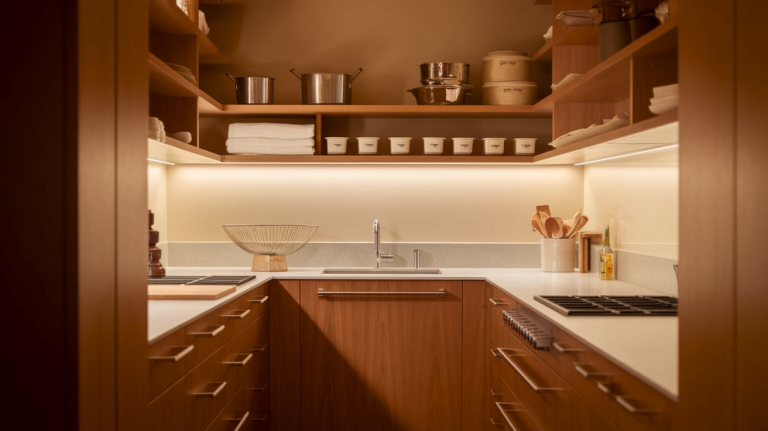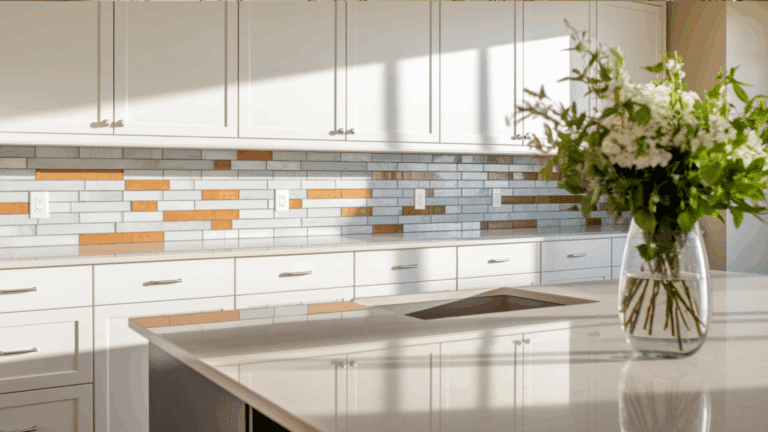How Long Does a Kitchen Remodel Project Actually Take
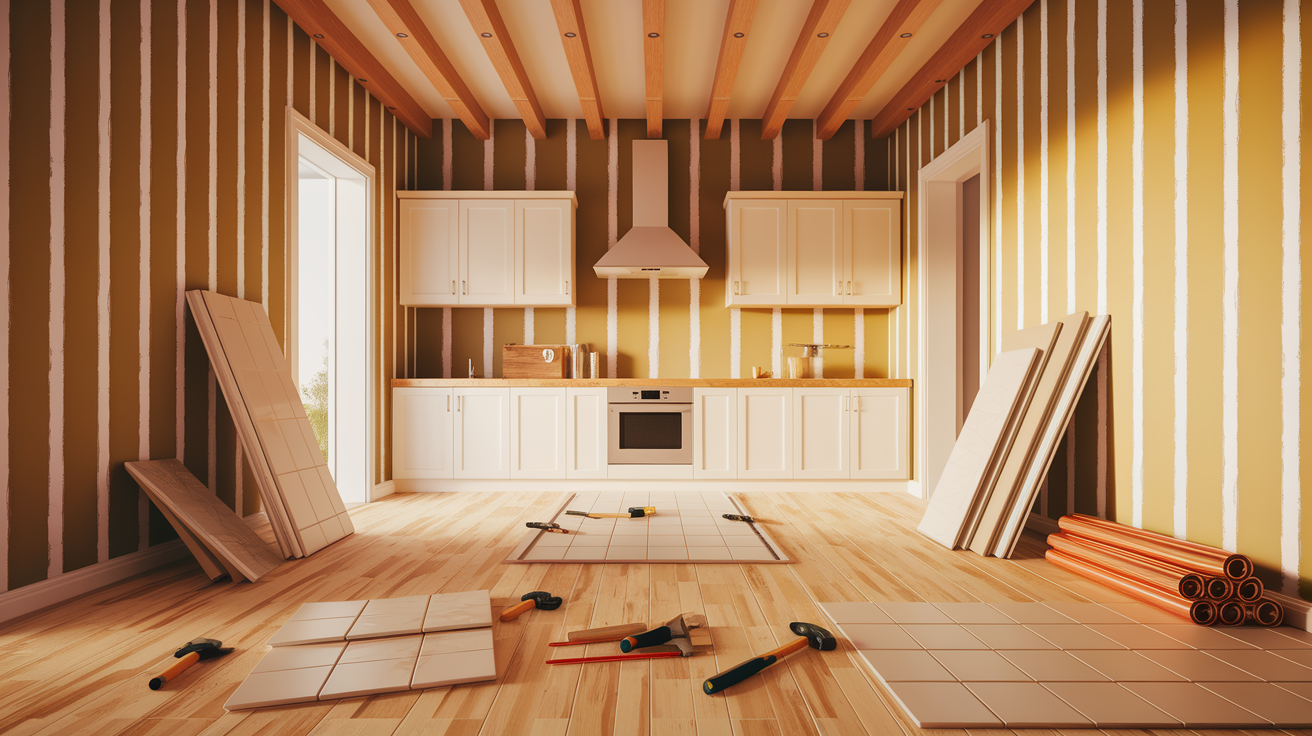
Are you dreaming about your perfect kitchen but wondering how long you’ll be living with construction dust?
Kitchen remodels can disrupt your daily life, but understanding the timeline helps you plan better and reduces stress. Most kitchen renovations take between 4-8 weeks for standard projects, but this can vary widely.
A simple update might be completed in just a couple of weeks, while a complete change could take more than three months.
In this blog, we’ll break down exactly how long each phase takes, from planning and demolition to the finishing touches.
Understanding Kitchen Remodel Timelines
That fancy home renovation show that completed a total kitchen makeover in a weekend? Pure television magic.
In real life, your kitchen renovation will take time, and that’s perfectly normal. A fresh coat of paint and new hardware might take just a weekend, while gutting everything down to the studs could keep your microwave in the living room for months.
Cosmetic updates might be completed in 1-2 weeks, standard remodels typically take 4-8 weeks, and complete renovations can take 12 weeks or longer. If you’re building custom cabinets or moving plumbing lines, plan for extra time.
Factors Impacting the Timeline:
- Complexity & Scope: Structural, plumbing, or electrical changes take longer
- Planning & Design: Finalizing plans and materials can take weeks
- Demolition: Removing old fixtures may reveal issues, causing delay
- Material Wait: Custom orders for cabinets or countertops add time
- Trade Coordination: Scheduling contractors can cause hold-ups
Stage-by-Stage Timeline Breakdown
Here’s a detailed stage-by-stage timeline breakdown of all the stages involved in a kitchen remodel:
Stage 1: Pre-Construction (2-3 months)

This initial phase sets the foundation for your entire project. During these 8-12 weeks, you’ll:
| Steps | Action |
|---|---|
| Develop Design Concept | Finalize layouts and overall design concept |
| Select Materials | Choose all materials (cabinets, countertops, fixtures, etc.) |
| Hire Contractors | Hire contractors and finalize quotes |
| Order Materials | Order materials with long lead times |
| Obtain Permits | Obtain necessary permits for the project |
Tip: Use this time to set up a temporary kitchen elsewhere in your home.
Stage 2: Construction (2-4 weeks)
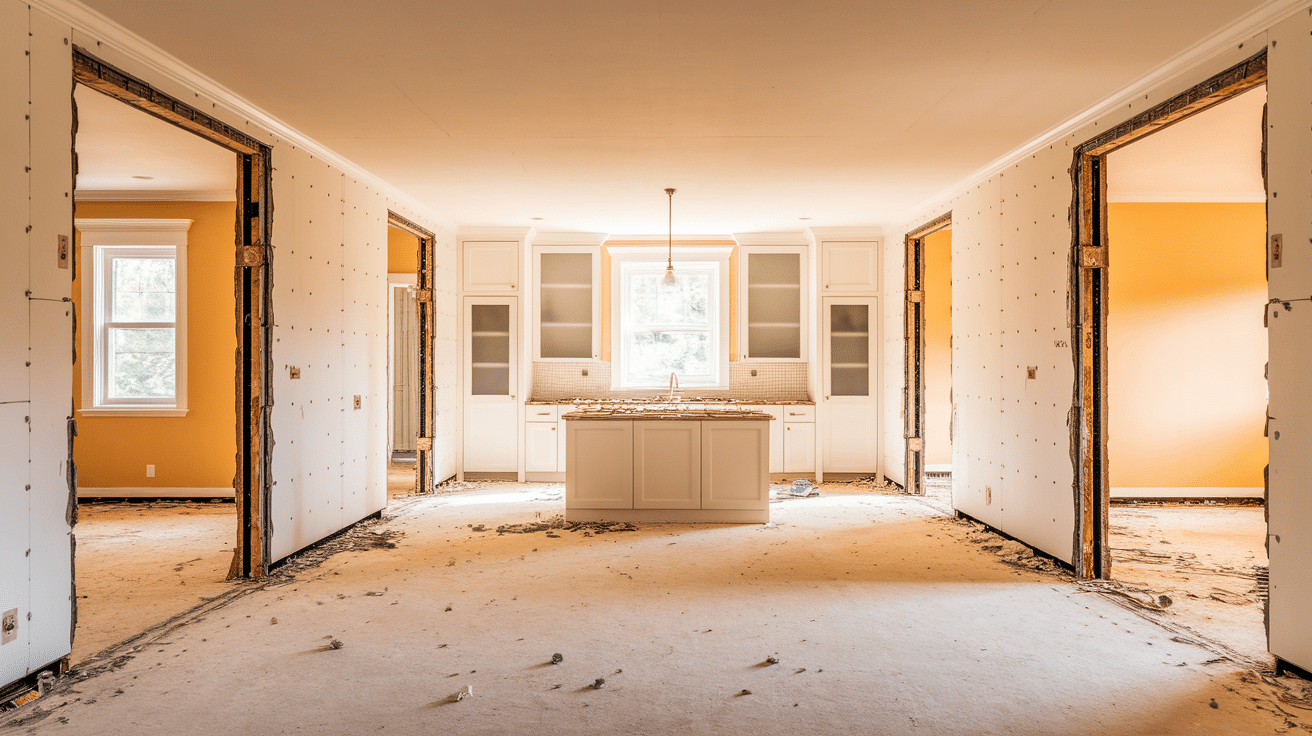
This is when the physical change happens. Over these 2-4 weeks, your kitchen will be:
| Steps | Action |
|---|---|
| Demolition | Completely demolished and stripped to the studs |
| System Updates | Updated with new plumbing, electrical, and HVAC systems |
| Inspection | Inspected to ensure all work meets building codes |
| Preparation | Prepared with drywall and basic structural elements |
Tip: Expect some dust and disruption during this phase, even with good containment systems.
Stage 3: Finishing (2-3 months)
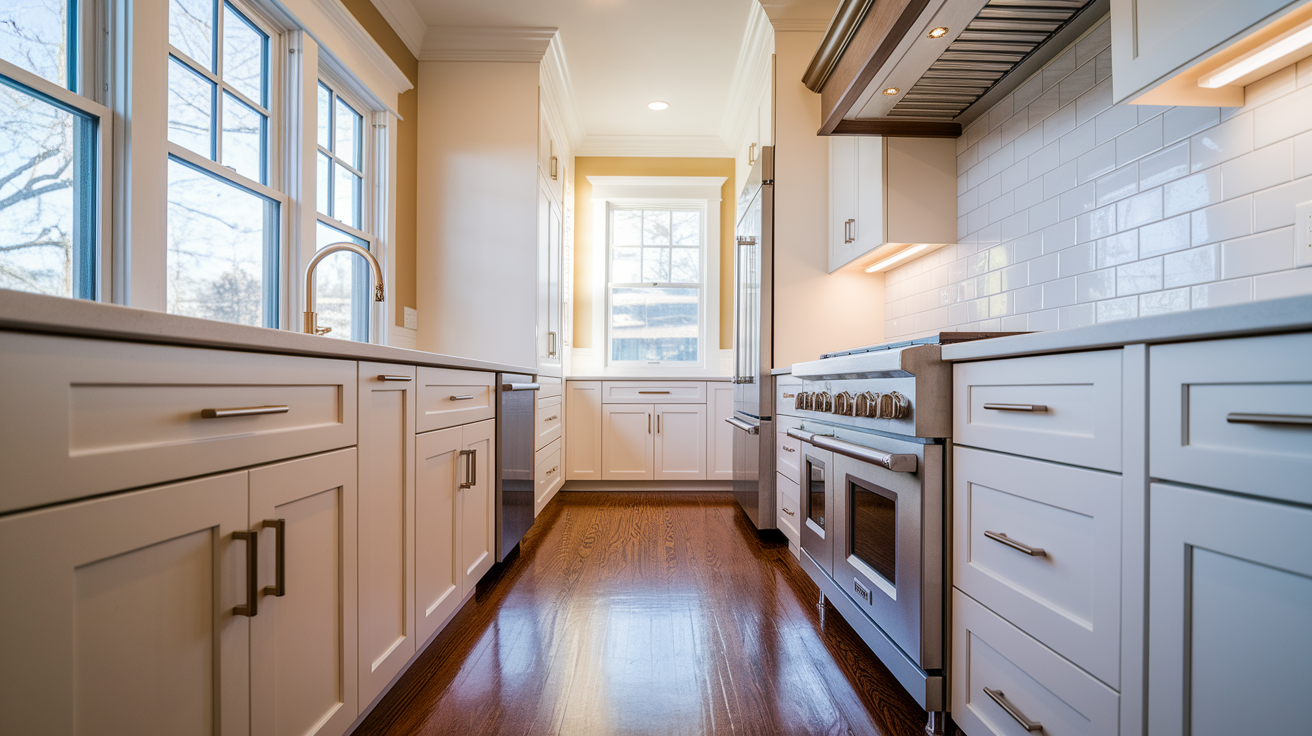
The final stage brings your kitchen to life. This usually takes 8-12 weeks, including:
| Tasks | Timeframe |
|---|---|
| Cabinet Installation | 1-2 weeks |
| Countertop Templating, Fabrication, and Installation | 2-3 weeks |
| Flooring and Backsplash Installation | 1-2 weeks |
| Appliance Delivery and Installation | 2-3 days |
| Lighting, Hardware, and Finishing Touches | 1 week |
| Final Inspections and Punch List Completion | 1 week |
Tip: The finishing stage often takes longer than expected due to the inclusion of small details and touch-ups.
Common Delays and How to Avoid Them
Renovating your kitchen is an exciting project, but sometimes delays can sneak in. Here are some of the most common delays and tips to avoid them:
- Material Delays
To Avoid Delays: Order materials well in advance, especially if you’re selecting custom pieces or items with longer lead times. Always have a backup plan in case something’s out of stock. - Unforeseen Structural Issues
To Avoid Issues: Have a professional inspect your kitchen before the remodel begins. This can help spot any potential problems early on, saving time during the project. - Contractor Scheduling Conflicts
How to Avoid Conflicts: Schedule your contractors ahead of time, and maintain open communication. If your project requires multiple contractors, coordinate their schedules to prevent overlap and delays. - Inaccurate Measurements
How to Avoid Mistakes: Double-check all measurements, especially for cabinets and countertops. It’s worth taking the extra time to get this right; accurate measurements prevent mistakes and costly rework. - Permitting Delays
How to Avoid Delays: Research local building codes and permitting requirements before starting. Submit permit applications early, and allow extra time for approval, especially if your remodel involves structural changes.
Can You Speed Up Your Kitchen Remodel
Yes, you can trim weeks off your kitchen renovation timeline, but it takes planning and sometimes compromise.
Start by choosing in-stock materials instead of custom options, as this can significantly reduce wait times. Hire a contractor with a full-time crew rather than one who juggles multiple projects with limited staff.
Make all your decisions before demolition begins; having your selections finalized prevents mid-project delays.
Perfect Time to Start Kitchen Remodel

While there’s no perfect time, here are a few things to keep in mind to help you decide the ideal time to start your kitchen remodel:
- Consider the Weather: Spring and early summer are great times. The mild weather makes material deliveries smoother, and it’s easier to keep the area well-ventilated.
- Avoid the Holidays: Try to avoid starting your project in December. Supply chains slow down, and workers often take time off for the holidays, which could lead to delays.
- Know Your Budget: The best time is when you’re mentally and financially prepared. Make sure your budget is in place and that you’re ready to commit to the project.
- Finalized Design: Before starting, ensure your designs are finalized. Having a clear idea of what you want will prevent changes later and help keep things on track.
- Life Events Matter: If you’re planning around a new baby or hosting an event, start at least six months earlier than you think you need to.
- When You’re Ready: Ultimately, the right time to start is when you feel ready, when your design is solid, your budget is set, and you’re prepared for the process.
Wrapping It Up
Renovating your kitchen can be exciting, but it comes with some challenges, especially regarding the timeline. By knowing what to expect at each stage, you can better manage the process and minimize disruptions.
If you’re looking for a quick update or a full overhaul, understanding the time commitment for each phase will help keep things running smoothly.
With a little patience and preparation, you’ll soon be enjoying your dream kitchen.
Frequently Asked Questions
Can a Simple Kitchen Update Be Done Faster?
Yes, smaller projects like cabinet or countertop replacements often take 4 to 8 weeks.
Does Hiring Professionals Speed Up the Process?
Professional teams typically complete remodels more quickly, averaging 4 to 8 weeks, compared to DIY projects, which may take a month or longer.
How Important is Scheduling in Kitchen Remodeling?
Scheduling is critical as many trades and deliveries must align; poor coordination can extend the timeline.

